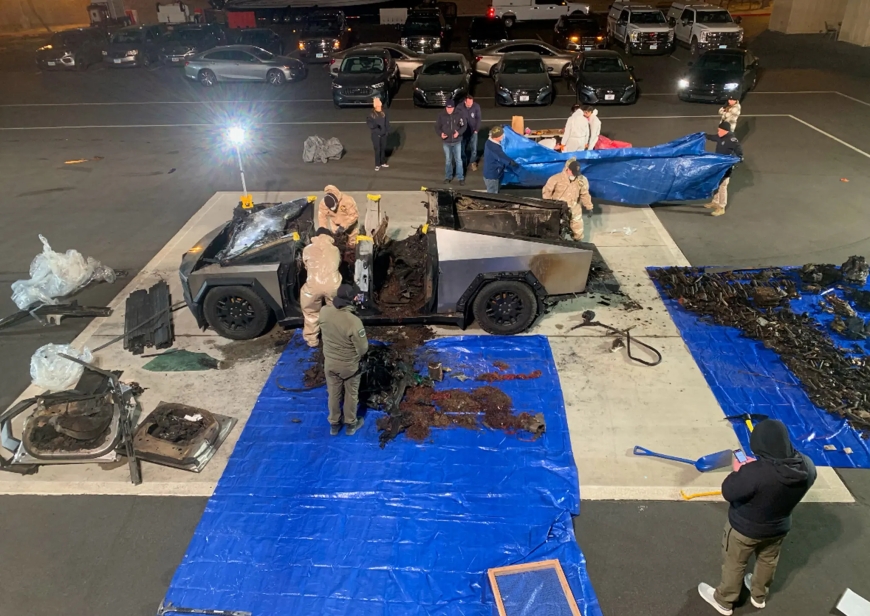The Silent Battle of a Soldier: How Trauma Tipped Tragedy
The sad tale of Matthew Livelsberger, a decorated Green Beret who killed himself in a dramatic explosion outside a Las Vegas hotel, draws attention to the sometimes invisible scars carried by war veterans. Livelsberger detonated an explosive-filled Cybertruck in front of the Trump International Hotel on New Year's Day, then fatally shot himself. For many who knew him, the act was a startling end to years of untreated suffering with traumatic brain injuries (TBI) and post-traumatic stress disorder (PTSD), disorders sometimes disregarded among military service personnel.

The sad tale of Matthew Livelsberger, a decorated Green Beret who killed himself in a dramatic explosion outside a Las Vegas hotel, draws attention to the sometimes invisible scars carried by war veterans. Livelsberger detonated an explosive-filled Cybertruck in front of the Trump International Hotel on New Year's Day, then fatally shot himself. For many who knew him, the act was a startling end to years of untreated suffering with traumatic brain injuries (TBI) and post-traumatic stress disorder (PTSD), disorders sometimes disregarded among military service personnel.
Former companion of Livelsberger, Alicia Arritt, an Army nurse trained in treating veterans with brain injuries, said she first saw TBI symptoms in him early 2018. He had memory lapses, insomnia, regular migraines, and depressed episodes. She said Livelsberger was reluctant to seek treatment even though he obviously needed help because he thought it may compromise his future in the elite 10th Special Forces Group. Many troops keep quiet about their ailments to prevent being sidelined, hence his concerns were not baseless. Veterans like Livelsberger are left managing their trauma alone, frequently with terrible results from this institutional resistance.
Experts believe that frequent exposure to explosions and high-risk military missions can have long-term neurological consequences, often showing years after the initial injury. TBI is a "silent injury," neurologists such as Dr. Michael Jaffee underline, usually ignored or misdiagnosed. A degenerative brain disease connected to recurrent head trauma, chronic traumatic encephalopathy (CTE) cannot be verified without post-mortem study. Living in special operations for two decades and having experience in contact sports, Livelsberger was particularly vulnerable for such injuries. Like many troops, he persisted while his symptoms got worse.
Livelsberger's life had collapsed at the time of his last deed. Having failed a demanding Army course in 2021, he showed symptoms of paranoia and declining mental health. Though he was a devoted husband and father, those closest to him saw a developing darkness. Arritt days before the catastrophe, a mysterious book suggested his difficulties but made no warning of what was to come. His last writings exposed intense regret about his military operations and a wish to "cleanse" himself of the load. Although his acts in Las Vegas were sad and destructive, they highlight the critical necessity of institutional reforms in how the military handles mental health and brain injuries so that none of a soldier carries the weight of such invisible fights by themselves.













































